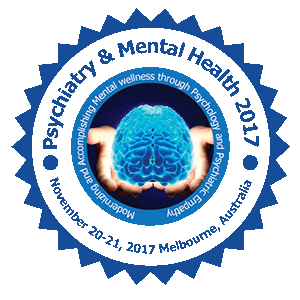
Behailu Beshir
Department of Psychology, Wolaita Sodo University, Wolaita Sodo, Ethiopia
Title: The efficacy of cognitive behavioral group counseling in reducing Aggressiveness and Impulsivity among recidivists
Biography
Biography: Behailu Beshir
Abstract
The present study aims to examine the efficacy of cognitive behavioral group counseling in reducing aggressiveness and impulsivity among recidivists. The study was conducted at Sodo and Arba Minch prisons, Ethiopia. This quasi-experimental study used a pre and post-test research design with a control group. During the first stage, the researcher designed and administered self-made instrument to identify recidivists and cause for recidivism. The result revealed that there were 64 and 59 recidivists at Sodo and Arba Minch prisons respectively. Further, the results showed that behaviors related to recidivism were aggressiveness and impulsivity. Aggression (Buss & Perry, 1992) and Impulsivity (Barratt, 1995) questionnaires were used for measuring aggressiveness and impulsivity. Recidivists with a history of three or more imprisonment were considered for the study. So, 41 recidivists of Sodo prison were considered in experimental group and 39 recidivists of Arba Minch prison in control group. Participants in the experimental group received group counseling for eight weeks, one day per week, for an hour per session, while the control group never received any type of counseling program. After a period of two months the same scales were administered again to both experimental and control groups. The paired t-test result showed that both aggressiveness and impulsivity significantly reduced after group counseling among recidivists in the experimental group (P<0.001), where as there was no change in the control group. Moreover, the correlation analysis result revealed that aggressiveness and impulsivity are highly related to each other (P=0.001). This study concludes that cognitive behavioral group counseling is a good therapy for reducing aggressiveness and impulsivity.

